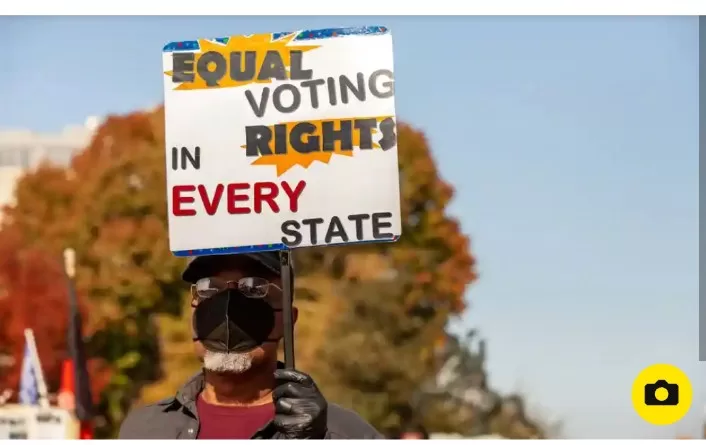The fight for democracy faces a significant setback as a federal appeals court, appointed by Republicans, ruled that only the US government, not external groups or citizens, has the right to sue for the enforcement of the provisions of the Voting Rights Act. The law, designed to prohibit racial discrimination in voting, has traditionally seen enforcement through lawsuits by private entities. This decision by the eighth circuit court of appeals challenges the “private right of action” to enforce Section 2 of the law.
The ruling originates from a case filed by the Arkansas State Conference NAACP and Arkansas Public Policy Panel concerning new maps created during redistricting. These groups claim the redistricting diluted the voting power of Black voters in the state.
Judge David Stras, appointed by Donald Trump, wrote the opinion, stating that while courts have allowed private claims for enforcing voting rights laws for decades, this is based on a “flimsy footing.” The ruling questions the assumption that private parties, aside from the attorney general, can bring enforcement actions under Section 2 of the law.
Chief Judge Lavenski Smith dissented, arguing that existing precedent supports citizens seeking judicial remedies and that the courts have heard such cases repeatedly.
The decision has practical implications, potentially dismantling the primary mechanism voting rights groups use to challenge racial discrimination in voting, often through lawsuits against electoral maps. Voting rights groups anticipate an appeal to the US Supreme Court.
The eighth circuit ruling applies to the states within its jurisdiction: Arkansas, Iowa, Minnesota, Missouri, Nebraska, North Dakota, and South Dakota.
Wendy Weiser, vice-president for democracy at the Brennan Center for Justice, criticized the decision as “radical” and contrary to decades of precedent and practice.




